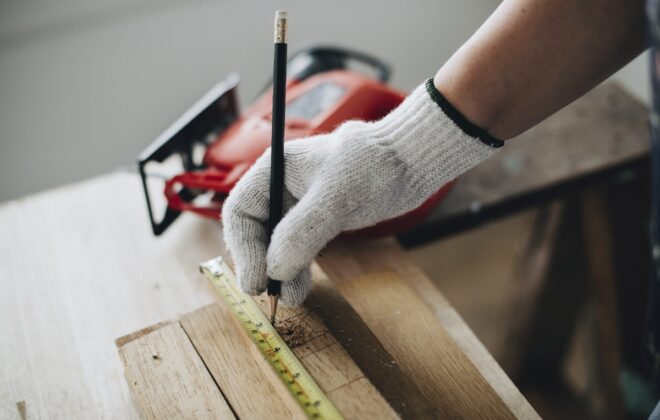Discover the Art of Custom Woodworking
Custom woodworking is a captivating craft that transforms raw wood into beautiful and functional pieces of art. It combines skillful craftsmanship, creativity, and attention to detail to create custom-made furniture, cabinetry, and other woodworking projects that are tailored to individual preferences and requirements. Whether you’re an aspiring woodworker or someone who appreciates the beauty of handcrafted wooden pieces, this article will take you on a journey into the world of custom woodworking.
What is Custom Woodworking?
Definition of Custom Woodworking
Custom woodworking refers to the practice of creating unique wooden pieces by hand, using specialized tools and techniques. Unlike mass-produced furniture or cabinets, custom woodworking involves crafting bespoke items that are customized according to specific measurements, design preferences, and functional needs of the client.
Importance of Custom Woodworking
Custom woodworking offers numerous advantages over mass-produced alternatives. It allows individuals to have furniture and cabinetry that perfectly fits their space and complements their interior design. Custom pieces are also built to last, as they are crafted with precision and high-quality materials. Additionally, custom woodworking enables the expression of personal style and creativity, resulting in one-of-a-kind masterpieces.
Tools and Materials for Custom Woodworking
Essential Tools for Custom Woodworking
To embark on a custom woodworking project, it’s important to have a collection of essential tools. These may include a table saw, miter saw, chisels, hand planes, routers, and various measuring and marking tools. Each tool serves a specific purpose in the woodworking process, from cutting and shaping wood to joinery and finishing.
Quality Materials for Custom Woodworking
Selecting the right materials is crucial for achieving outstanding results in custom woodworking. High-quality hardwoods, such as oak, cherry, walnut, and maple, are commonly used for their durability and natural beauty. Attention to detail extends to the selection of finishes, such as stains, oils, and varnishes, which protect and enhance the wood’s appearance.
Techniques in Custom Woodworking
Joinery Techniques
Joinery techniques play a fundamental role in custom woodworking, as they determine the strength and stability of the finished piece. Common joinery techniques include dovetail joints, mortise and tenon joints, box joints, and finger joints. Each technique requires precision and skill to ensure a seamless and long-lasting connection between wooden parts.
Finishing Techniques
The finishing stage of custom woodworking involves sanding the wood surfaces to a smooth finish and applying a protective coat. Finishing techniques, such as staining, oiling, or varnishing, enhance the wood’s natural color and grain while providing durability. Proper finishing not only protects the wood but also adds a touch of elegance to the final product.
Custom Carpentry: Bringing Ideas to Life
Designing Custom Woodworking Projects
Designing custom woodworking projects involves translating ideas and inspirations into detailed plans. This process includes creating sketches or using design software to visualize the final product, considering the dimensions, functionality, and aesthetic aspects. Attention to detail is crucial to ensure that the design aligns with the client’s vision.
Building Custom Woodworking Projects
Once the design is finalized, the building process begins. This phase encompasses precise measurements, cutting, shaping, and assembly of wooden components. Custom woodworkers use their expertise and experience to transform raw materials into exquisite pieces, paying close attention to every detail along the way.
The Benefits of Custom Woodworking
Unique and Personalized Creations
One of the main benefits of custom woodworking is the ability to create unique and personalized creations. Clients have the opportunity to collaborate closely with woodworkers, sharing their vision and preferences. This level of customization ensures that the final product is a true reflection of the client’s style and requirements.
High-Quality and Long-Lasting Products
Mass-produced furniture often lacks the durability and craftsmanship found in custom woodworking. Custom pieces are built with meticulous attention to detail, using high-quality materials and techniques. As a result, they are not only visually appealing but also designed to withstand the test of time.
Custom Woodworking for Functional Needs
Custom woodworking goes beyond aesthetics; it also caters to functional needs. Whether it’s designing a custom kitchen cabinet that maximizes storage space or creating a unique office desk tailored to specific work requirements, custom woodworkers can adapt their skills to meet functional demands.
Hiring a Professional Custom Woodworker
Factors to Consider When Choosing a Custom Woodworker
When seeking a professional custom woodworker, several factors should be taken into account. These include experience, portfolio of past projects, customer reviews, and knowledge of different woodworking techniques. It’s essential to find a woodworker who understands your vision and has the expertise to bring it to life.
Communication and Collaboration with the Woodworker
Effective communication and collaboration with the chosen woodworker are vital for a successful custom woodworking project. Clear and open discussions about design preferences, budget, and timelines help establish a strong partnership. Regular updates and feedback throughout the process ensure that the final piece meets or exceeds expectations.
Showcasing Custom Woodworking
Exhibitions and Craft Fairs
Custom woodworkers often participate in exhibitions and craft fairs to showcase their creations to a wider audience. These events provide an opportunity to connect with potential clients, network with other artisans, and receive feedback on their work. Exhibitions and craft fairs celebrate the art of custom woodworking and allow enthusiasts to appreciate the mastery behind each piece.
Online Platforms and Social Media
In the digital age, online platforms and social media play a crucial role in promoting custom woodworking businesses. Woodworkers can display their portfolio, share behind-the-scenes content, and engage with their audience through platforms like Instagram, Facebook, and dedicated websites. These platforms enable woodworkers to reach a global audience and connect with individuals interested in their craft.
From sawdust to masterpieces, custom woodworking embodies the artistry, craftsmanship, and dedication of skilled woodworkers. By creating personalized and high-quality wooden pieces, custom woodworking brings beauty, functionality, and individuality into homes and spaces. Whether it’s a handcrafted dining table, a custom-built bookshelf, or a unique cabinetry solution, custom woodworking elevates the ordinary to extraordinary.
FAQs:
What is the difference between custom woodworking and mass-produced furniture?
Custom woodworking involves handcrafting bespoke wooden pieces according to specific client requirements, while mass-produced furniture is manufactured in large quantities with limited customization options.
How long does a custom woodworking project usually take?
The duration of a custom woodworking project varies depending on its complexity, size, and the woodworker’s workload. It’s best to discuss the estimated timeline with the chosen woodworker.
Can I request a custom woodworking project even if I don’t have a design in mind?
Absolutely! A skilled woodworker can collaborate with you to develop a design based on your preferences, functional needs, and available space.
How do I take care of custom woodworking pieces to maintain their beauty and longevity?
Regular dusting, avoiding direct sunlight, and using recommended wood cleaners or polishes are some basic maintenance practices. Consult with the woodworker for specific care instructions based on the type of wood and finish used.
Are custom woodworking projects more expensive than mass-produced furniture?
Custom woodworking projects often come at a higher price point due to the personalized craftsmanship, quality materials, and attention to detail involved. However, the investment is worthwhile for those seeking unique and long-lasting pieces.
Related Posts
Leave a Reply Cancel reply
Recent Posts
- 7 Essential Staircase Design Tips for a Perfectly Crafted Staircase
- 8 Seasonal Home Maintenance Tips to Protect and Upgrade Your Home
- 5 Smart Space-Saving Carpentry Ideas That Transform Tight Spaces
- 5 Brilliant Tips for Designing Custom Banquettes That Blend Style and Function
- 5 Reasons Finish Carpentry Prep Caulking and Sanding Make or Break the Final Result
Recent Comments
Archives
- May 2025
- April 2025
- March 2025
- February 2025
- October 2024
- September 2024
- August 2024
- July 2024
- June 2024
- May 2024
- April 2024
- March 2024
- February 2024
- January 2024
- December 2023
- November 2023
- October 2023
- September 2023
- August 2023
- July 2023
- June 2023
- May 2023
- April 2023
- March 2023
- February 2023
- January 2023
Categories
- Carpentry DIY Tutorials
- Carpentry for Home Improvement
- Carpentry Q&A
- Carpentry Safety and Best Practices
- Carpentry Trends
- Custom Carpentry
- Design Inspiration
- Finish Carpentry
- Smart-Saving Carpentry
- Staircase Design Tips
- Tool Reviews and Recommendations
- Uncategorized
- Wood Selection and Finishing
- Woodworking Techniques
Categories
- Carpentry DIY Tutorials (5)
- Carpentry for Home Improvement (27)
- Carpentry Q&A (10)
- Carpentry Safety and Best Practices (6)
- Carpentry Trends (12)
- Custom Carpentry (27)
- Design Inspiration (15)
- Finish Carpentry (12)
- Smart-Saving Carpentry (1)
- Staircase Design Tips (1)
- Tool Reviews and Recommendations (2)
- Uncategorized (38)
- Wood Selection and Finishing (1)
- Woodworking Techniques (6)




